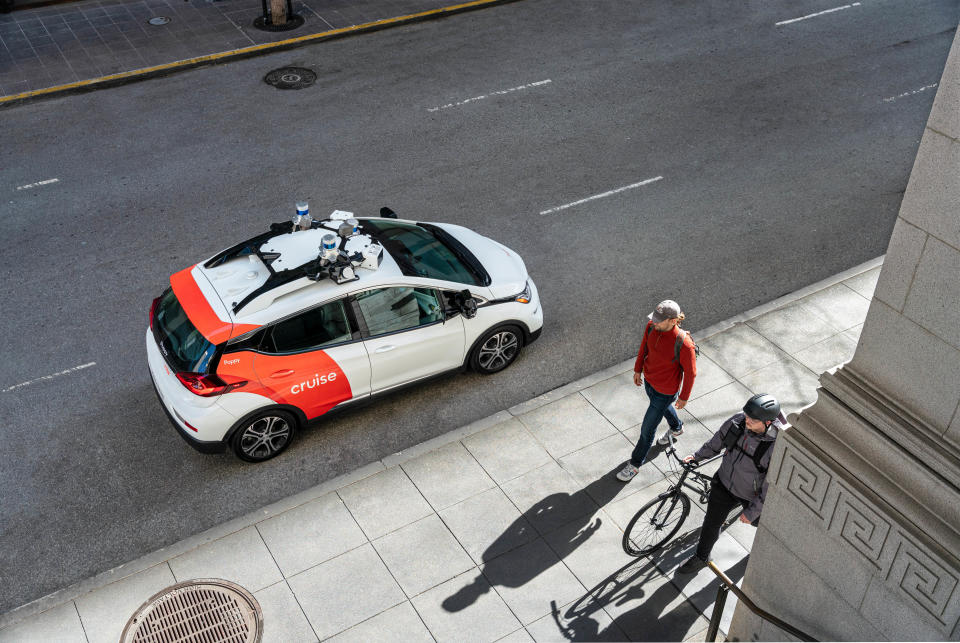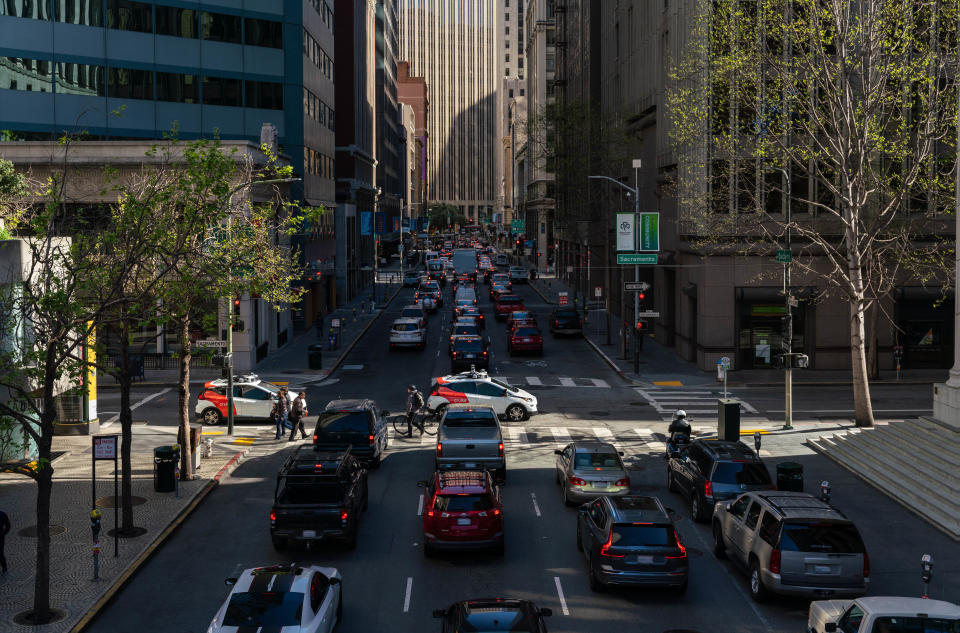Self-driving taxis are coming to Nashville. Are they safe, and who gets to decide that?
One self-driving taxi got stuck in wet concrete. Another collided with a firetruck. A line of 10 robotaxis stopped in the street when a nearby festival overloaded their cell service. Drivers have reported self-driving taxis that get confused by construction sites or slam on the brakes when a plastic bag flitters across their windshields.
San Francisco is at the forefront of the robotaxi revolution. But a day after California dropped most restrictions on self-driving services in mid-August, one of the two main operators, the GM-backed Cruise, agreed to pull half its cars off the city's streets after a string of problems.
Cruise announced in late July it would begin testing these self-driving taxis in Nashville.
Here's an expert's advice: What should you do if you see a self-driving taxi in Nashville?
Backed by more $15 billion in venture capital funding, Cruise has been expanding quickly this summer. It also announced that its all-electric driverless taxis are heading to cities that include Atlanta, Miami, Houston, Dallas and Charlotte, North Carolina. Cruise already operates in Austin and Phoenix, Arizona.
Cruise could not provide a timeline for when the Nashville robotaxis would start carrying passengers.
Many cars already have computers that help us drive. They let us know when we veer out of our lane or get too close to another vehicle. Fully automated cars, however, remove the driver entirely. Vehicles equipped with an automated driving system, or ADS, have been used around the world in trucks for deliveries and shipping. Now, self-driving cars are entering cities, with their traffic, pedestrians and irregular streets.
Cruise and Waymo, the other main robotaxi operator, claim their vehicles are far better drivers than humans. Computers don’t drive drunk or text behind the wheel.
“People generally think they’re better drivers than they actually are,” said Jeff Farrah, executive director of the Autonomous Vehicle Industry Association.
Although the industry touts the safety record of self-driving taxis, it has shared little data with outside researchers. Only serious accidents must be reported to the federal government.
“I don’t feel anyone can credibly say with confidence these vehicles are safe,” said David Zipper, a visiting fellow at the Harvard Kennedy School who researches autonomous vehicles.
What the future may bring
From his office window at the University of Tennessee in Knoxville, Bill Fox can see the Tennessee River. Fox, an economist, can also see a future when his view won’t be marred by parking garages. Instead of owning cars, he imagines, one day we will rely on self-driving taxis to get around.
“It’s cheaper for you and I as individuals, because it no longer makes sense for us to have a vehicle sitting in our garage or parking place at work 23 hours a day,” he said.
Without a driver, automated taxis will be less expensive to operate. They can also replace delivery trucks. On the University of Tennessee campus, Fox can already get his lunch delivered by a fleet of small robots.
State Rep. William Lamberth, R-Portland, is passionate about the possibilities of self-driving cars.
“I have several friends that are disabled,” Lamberth said. “For the disabled and elderly in our community, it changes everything.
In 2017, Lamberth introduced the legislation that legalized self-driving cars in Tennessee. State Sen. Jon Lundberg, R-Bristol, authored the Senate version of the bill.

How safe are self-driving cars?
Human error causes nearly all car accidents. The self-driving car industry is quick to claim that removing humans from behind the wheel can only make us safer.
“At the end of the day, our mission is to improve road safety,” said a representative of Cruise.
Cruise said its research shows its self-driving cars, when compared to human-operated cars, had 54% fewer collisions and 92% fewer crashes where its vehicles were the primary contributor. Cruise also noted that many women feel safer in a computer-driven car than an Uber or Lyft driven by a stranger.
Philip Koopman of Carnegie Mellon University has studied the safety of self-driving cars for 25 years. He is skeptical of the industry’s claims. And he does not believe that collisions are the only dangers posed by self-driving vehicles.
The self-driving vehicles often drive very conservatively, which the industry admits. That behavior, Koopman said, can block traffic and slow emergency vehicles. And self-driving cars can stop when confronted with something new.
“It’s about the unusual stuff that it hasn’t been trained on,” Koopman said. “But the stuff that’s unusual to it may not seem unusual to you. It’s hard to predict.”

Regulating self-driving cars
The federal government does not currently regulate self-driving cars, other than requiring that major collisions be reported monthly to the National Highway Traffic Safety Administration. Instead, individual states must decide whether the technology is safe enough for their roads.
Across the country, 23 states have passed legislation to allow self-driving vehicles.
Tennessee’s law places few requirements on self-driving cars. The vehicle must be able to operate in compliance with state and federal laws, it must carry $5 million in liability insurance, and it must be able to stop if the self-driving system fails.
The owner of a self-driving car certifies that the vehicle can operate legally by checking a box and signing a form filed with the Department of Revenue.
“The Department of Revenue does not independently verify the information, nor do we otherwise regulate these types of vehicles,” said a spokeswoman for the department.
Tennessee’s law also includes a local preemption clause, which is common in self-driving vehicle laws across the country.
“This statute preempts any effort by Metro (or any local government) to ban or impose specific regulations on an ADS vehicle,” emailed Nashville law department director Wallace Dietz.

While Nashville has no legal authority over self-driving vehicles or robotaxis, a spokeswoman for Cruise said the company “engaged with a number of state and local officials, including the Nashville Department of Transportation, Nashville Metro Council and Governor (Bill) Lee's office.”
The Nasvhille Department of Transportation contacted Cruise itself after the company publicly announced plans for self-driving taxis in the city. The mayor’s office was contacted prior to the announcement by a lobbyist working for Cruise and has not hear from the company since.
Koopman, the safety expert, urges cities to work with Cruise and other self-driving taxi companies to get data about their vehicles. But cities should be prepared to collect their own information about crashes, traffic delays and interference with emergency vehicles if the companies refuse to provide it. He also said other drivers and pedestrians should be wary around these self-driving cars.
Self-driving cars are getting closer to being safe, in Koopman’s opinion. But he cautioned that with technology the last steps can be the hardest.
“No one knows if it’ll be another year or another 25. But I’m betting it’s longer than a year,” he said.
Todd A. Price is a regional reporter for the USA TODAY Network. He can be reached at taprice@gannett.com.
This article originally appeared on Nashville Tennessean: Self-driving taxis are coming to Nashville. Are they safe?

